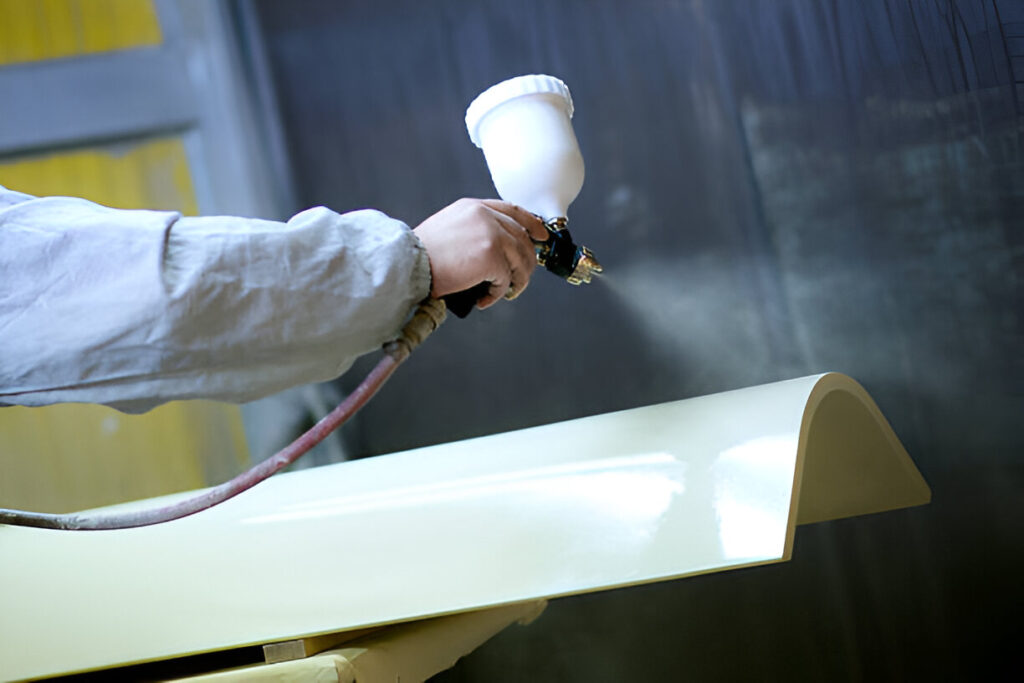Powder coating is a popular finishing technique used to protect metal surfaces and provide them with a durable, attractive finish. It is widely used in industries such as automotive, furniture, and architecture. While many people choose powder coating for its long-lasting results, one of the most common concerns is the cost. In this article, we will explore the various factors that influence powder coating cost and help you understand how to budget for this process.
What is Powder Coating?
Before delving into the cost, it’s important to understand what powder coating actually is. Unlike traditional liquid paints, powder coating involves applying a dry powder to a metal surface, which is then heated to form a hard, protective layer. This process is favoured for its durability, resistance to scratching and fading, and eco-friendliness, as it releases fewer volatile organic compounds (VOCs).
Key Factors Influencing Powder Coating Cost
The cost of powder coating can vary significantly based on several factors. Understanding these can help you estimate a more accurate price for your project.
1. Type of Material
The type of material being coated plays a significant role in determining the cost. Metals such as aluminium, steel, and iron are commonly powder-coated, but the surface preparation required for different materials can affect the price. For example, aluminium surfaces may require more detailed preparation than steel, which could increase the overall cost.
2. Size and Complexity of the Object
The size and shape of the object being coated are crucial to the cost. Larger or more complex items require more powder and longer application times. Intricate shapes or those with hard-to-reach areas may also necessitate additional time and effort for both coating and curing, which can further increase the price.
3. Colour and Finish
The colour and finish of the powder coating can influence the price. Standard colours are generally more affordable than custom colours or finishes, such as metallic, textured, or glossy coatings. Custom colours often require specialised powders, and the additional work involved can lead to higher costs. If you require a specific colour match, the price may also increase.
4. Volume of Work
The quantity of items being powder-coated also affects the price. Larger orders may benefit from bulk pricing, which can lower the cost per unit. Conversely, small-scale or one-off projects tend to be more expensive on a per-item basis due to the fixed costs of setting up the equipment.
5. Preparation and Curing Time
Surface preparation is an essential part of the powder coating process. If the metal needs to be cleaned, sandblasted, or pre-treated, this can add to the overall cost. Additionally, the curing process, where the coated item is baked in an oven, can also affect the price. Items requiring longer curing times or higher temperatures will increase energy costs and, consequently, the total cost of powder coating.
Average Powder Coating Cost
On average, powder coating costs in the UK range from £25 to £50 per square metre, depending on the factors mentioned above. Smaller, simpler items may cost as little as £10 to £20 per item, while larger or more complex objects could cost significantly more. Custom colours or finishes can add anywhere from 10% to 30% to the base price.
Conclusion
Powder coating is a cost-effective solution for long-lasting, high-quality finishes, but it’s essential to consider all the factors that influence the cost. The material, size, colour, and preparation required for your project will determine the final price. By understanding these variables, you can make a more informed decision and budget accordingly.
Click the link below to find out more!


